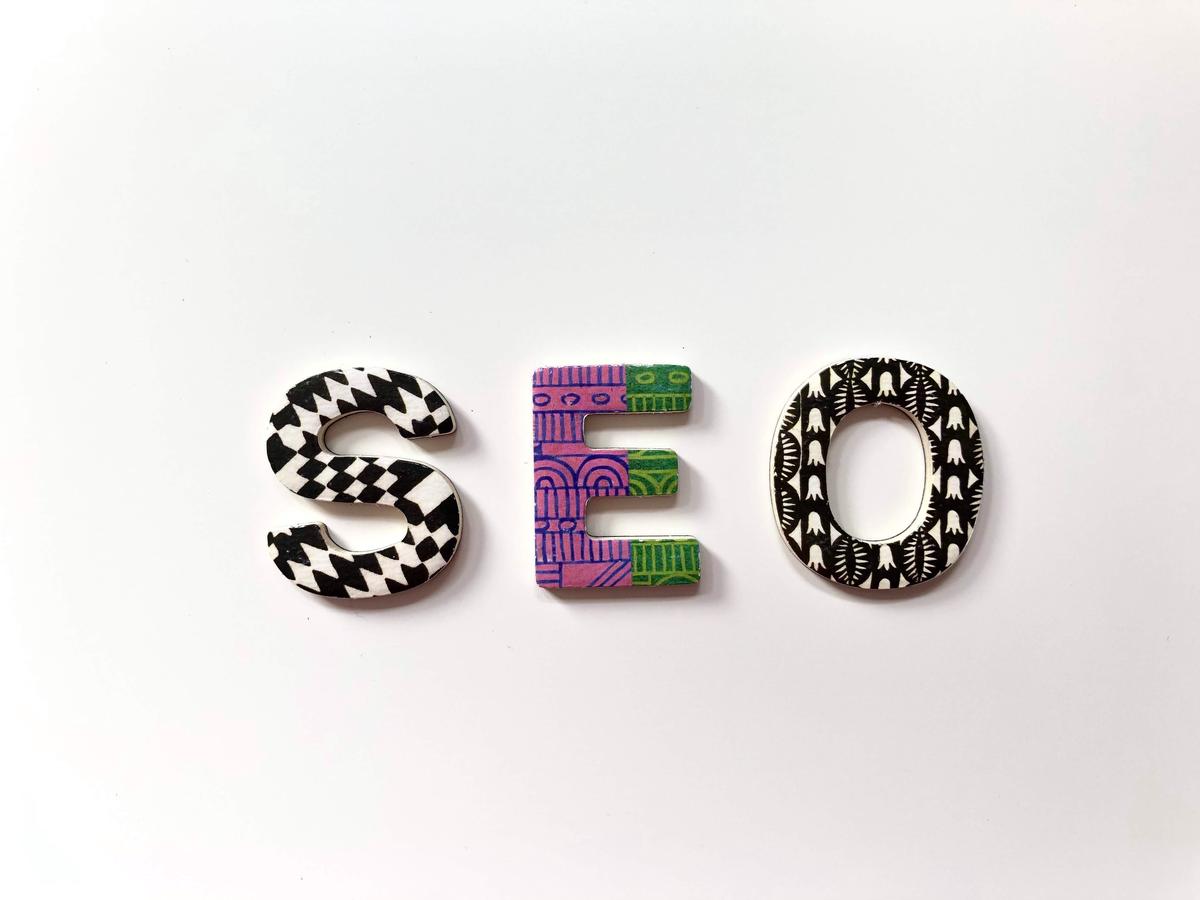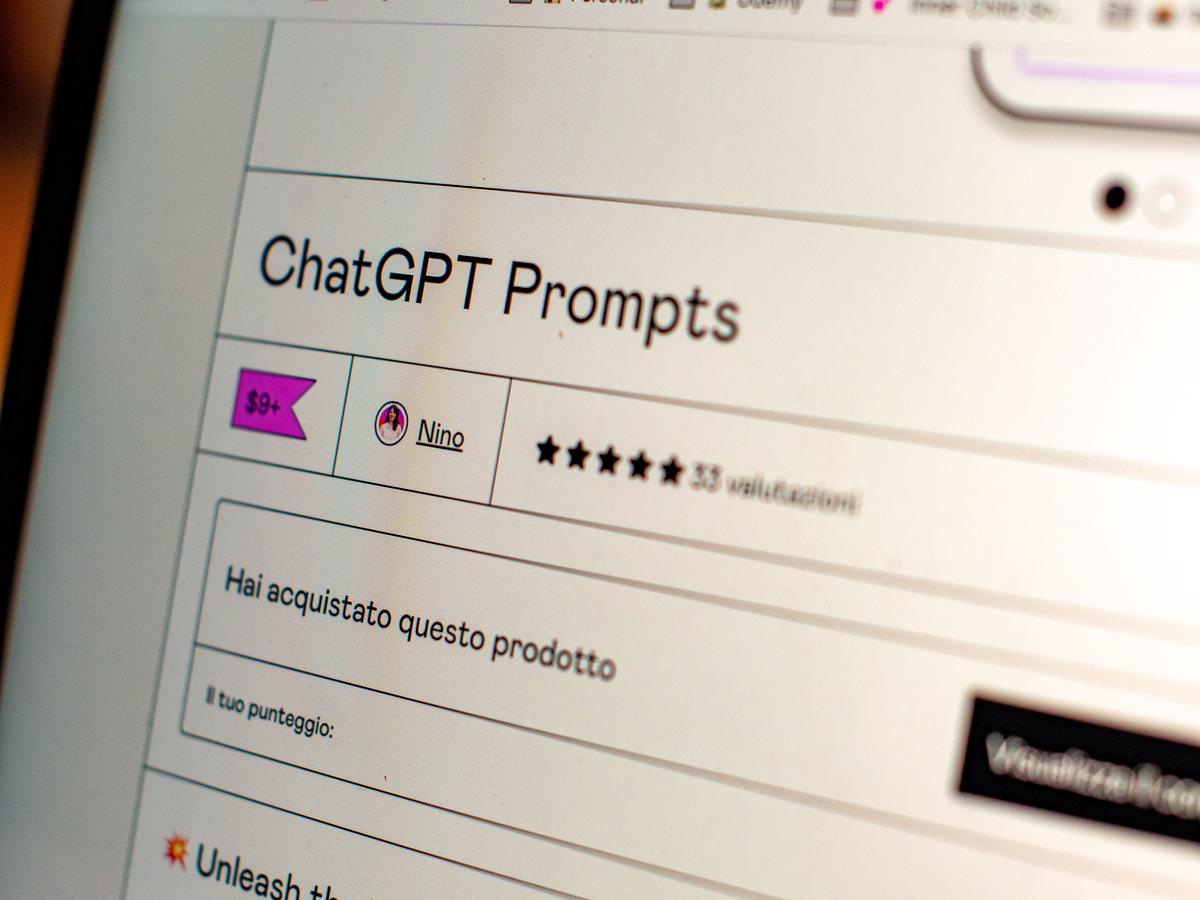In the grand sphere of digital transformation, artificial intelligence (AI) and machine learning models have gradually taken center stage, reshaping numerous sectors including digital marketing. Recognizing this paradigm shift, we’re turning our attention towards ChatGPT, an advanced language prediction model by the computing cognoscenti of OpenAI, and its relevance to Search Engine Optimization (SEO). Broadly, we delve into the rudimentary understanding of ChatGPT, its operations, and potential applications, before unravelling the significant role of content in SEO- its hierarchal importance in keyword research, user intent recognition, and content generation. Subsequently, we take an insightful leap into the practical application of ChatGPT in creating SEO-optimized content, along with a critical analysis of its merits and demerits. Therein, we stir curiosity about the future landscape of AI-tools embedded in SEO strategies and their subsequent influence on algorithm updates and content marketing trends.
Understanding ChatGPT
Understanding ChatGPT
ChatGPT is a language prediction model developed by OpenAI, a research organization committed to developing and promoting friendly AI for the benefit of all of humanity. The primary function of ChatGPT is to predict and generate text based on a given input, a task it accomplishes using machine learning techniques.
The origins of ChatGPT can be traced back to the development of the Transformer, a model architecture used in natural language processing tasks. Transformer was the basis for GPT (Generative Pre-trained Transformer), which led to the development of improved versions, including GPT-2 and GPT-3, and eventually, ChatGPT.
The way ChatGPT operates is by using a large number of parameters learned from a massive amount of text data. It employs a transformer model that processes input sequentially, applies self-attention mechanisms to weigh the importance of words and phrases, and generates text predictions based on the patterns discovered. Employing unsupervised learning, it generates predicted text outputs by simulating the patterns and instructions it has learned from the data it was trained on.
Applications of ChatGPT
ChatGPT has a wide range of potential applications. Because of its ability to mimic human-like text, it can be used in various customer service contexts, replying to customer queries in real time without human intervention. It can create dialogue for video games, simulate characters for virtual reality experiences, write essays or articles, help write code, and even compose poetry.
In regards to SEO (Search Engine Optimization), ChatGPT also has several applications. It can aid in keyword research and content generation, making it possible to create well-optimized content at scale. With its capabilities for generating human-like text, it can provide relevant and high-quality content that is tuned to the preferences of the specific audience and the requirements of search engine algorithms.
An Overview of ChatGPT and Machine Learning
At the core of ChatGPT’s functionality is a subset of artificial intelligence known as machine learning, which empowers computers with the capability to understand and make decisions based on data. Notably, ChatGPT leverages a specific kind of machine learning technique known as deep learning, which deploys algorithms designed to abstract high-level patterns in data.
For ChatGPT, deep learning plays an essential role in grasping and interpreting the semantic meaning of words as well as generating text like a human would. The model gets trained on a considerable volume of text, enabling it to understand the contextual relationship between words and the formulation of sentences and paragraphs. Once the training is accomplished, ChatGPT can generate grammatically true and semantically significant text.
Machine learning’s role in Search Engine Optimization (SEO) cannot be discounted. It aids in optimizing content that appeals to search engines by comprehending the semantic value between words and identifying patterns in successful ones. It can propose new keywords, suggest optimizations to currently used ones and even generate unique content likely to rank favorably in search results.

Photo by onehundredseventyfive on Unsplash
Role of Content in SEO
Navigating SEO and Understanding the Importance of Content
SEO, or Search Engine Optimization, is the practice aimed at enhancing a website’s visibility on search engines. The process involves employing various strategies, notably, keyword research, appreciation of user intent, and creation of premium, relevant content.
Performing keyword research is a substantial aspect of SEO. It comprises identifying the exact words and phrases that individuals use on their online searches. By incorporating these identified keywords into a website’s content, there’s a likelihood of escalating its ranking on search engines.
An understanding of user intent is another crucial metric in SEO. It denotes the aim a user has while executing a search. The person could be aiming to locate precise information, desire to make a purchase, or simply browsing. Comprehending user intent can shape your content creation in ways that meet their requirements and, as a result, enhance your search engine ranking.
Finally, high-quality content is integral to SEO. The content needs to be more than just a collection of keywords; it should offer valuable insights to the user. Effective, high-quality content tends to engage the user for longer durations and invites more shares of your content. These actions can favorably sway your SEO ranking.
ChatGPT and Its Role in SEO
ChatGPT, also known as Generative Pre-training Transformer, is a linguistic model conceptualized and developed by OpenAI. Renowned for its ability to generate near-human, natural conversation-like text, it’s an instrumental tool for crafting impressive, SEO-optimized content.
The model provides an innovative platform for brainstorming and constructing engaging, informative content peppered with pertinent keywords. Remaining at the forefront of modern SEO practices, the AI optimizes the process of content conception, centering on thorough keyword exploration. The final product is content that’s not just engaging for users, but it’s also extremely discoverable by search engines.
A significant attribute of ChatGPT is its capacity to fashion content with a conversational undertone, a technique known to strike a chord with readers and drive user interaction. Increased such engagement can, in turn, amplify the SEO strength of the website it benefits.
While ChatGPT’s efficiency and efficacy in SEO content creation is undeniable, it’s essential to fine-tune and review the machine-crafted content to confirm its relevance and accessibility to users.
Enhancing user experience, understanding the nuance of keywords, and generating alluring content, ChatGPT proves itself to be a game-changing tool in boosting your SEO efforts. With functions like auto-generation of high-quality material, it helps drive up your website’s search engine visibility, expand your audience reach, and improve web traffic. This ultimately bolsters your search engine performance.
To sum it up, while ChatGPT has the potential to revolutionize your SEO strategy, the content it produces needs a steady, careful review to ensure it delivers maximum value while staying relevant to your audience.

ChatGPT for SEO Content Generation
Getting to Know ChatGPT Better
OpenAI’s brainchild, ChatGPT, is an advanced AI model exceptionally adept at interpreting and generating text resembling human conversation. With its foundation rooted in a technology known as the Generative Pretrained Transformer, the system is efficient at conducting contextual dialogues, composing discourses, generating creative content, among other things. Its ability to create readable and context-savvy text marks its utility in crafting content that aligns well with SEO demands.
ChatGPT and SEO Content Generation
ChatGPT could play a vital role in enhancing a website’s SEO performance. Numerous marketers and content creators are finding it a useful tool to generate SEO-optimized content. Since SEO is constantly evolving, being able to quickly adapt to these changes is crucial, and ChatGPT offers a way to facilitate this adaptation.
For instance, based on keyword research and user intent, ChatGPT can generate engaging and unique content. It can draft titless and descriptions that align with target keywords, create meta descriptions that are convincing to both search engines and users, and construct URL slugs that are SEO friendly. This AI technology understands context and semantics, helping creators to draft content that matches with specific search engine guidelines.
Practical Applications of ChatGPT in SEO
The application of ChatGPT in SEO is extensive and practical. It could be used to create blog posts, product descriptions, and social media posts that are unique, engaging and optimized for search engines.
One of the key applications of ChatGPT is long-tail keyword optimization. The program can use these keywords to generate content that inherently promotes higher ranking in search engine results. Besides keyword-based content creation, it can also assist in creating internal and external links, which are pivotal in enhancing a site’s SEO.
Case Studies Highlighting Use of ChatGPT in SEO
In one case study, a digital marketing company used ChatGPT to generate automated blog posts for their clients. The AI tool drafted content that was not only unique and engaging, but also adhered to the keyword strategy laid out by the SEO team. This resulted in a faster content creation process, which meant quicker updates to their clients’ websites. More frequent updates resulted in increased crawl frequency by search engines, leading to an overall enhancement in the clients’ SEO rankings.
Another instance saw an eCommerce company using ChatGPT to generate meta descriptions and product descriptions. The AI model produced thousands of personalized, search-optimized descriptions in a matter of minutes. The unique and engaging descriptions attracted more clicks, resulting in improved organic search rankings, better click-through rates, and elevated sales levels.
The Role and Impact of ChatGPT in SEO Content Generation
ChatGPT has considerably influenced the field of SEO content creation, simplifying the process while also optimizing for search engine standards. Notably, its scalability and time efficiency aspects indicate a potential for a significant shift in the way SEO-related content is produced.

Photo by emilianovittoriosi on Unsplash
Pros and Cons of Using ChatGPT for SEO
Understanding ChatGPT
Developed by OpenAI, ChatGPT, or Generative Pretrained Transformer, is an AI conversation agent. It has been trained using a method called reinforcement learning with human feedback, utilizing a transformer architecture, thereby enabling it to construct human-like text and dialogue.
The Pros of Using ChatGPT for SEO
One of the major positives of using ChatGPT for Search Engine Optimization (SEO) is the ability to quickly and efficiently generate high-quality content. SEO relies heavily on content creation, keyword optimization, and a solid understanding of the nuances of search engine algorithms. ChatGPT has been trained on the entire internet and its extensive knowledge base combined with the ability to understand and generate human-like text can help streamline content creation. It can rapidly generate various versions of search engine optimized content to draw in web traffic and audience engagement.
Another major advantage is ChatGPT’s cost-effectiveness. Employing a human team to consistently generate high-quality SEO content can be expensive. However, with the one-time cost of deploying ChatGPT for your content needs, businesses can expect cost reduction in the long-term.
ChatGPT and SEO: Addressing the Issues
As novel as it may seem, involving ChatGPT in generating SEO contents comes with its fair share of potential problems. One of the prime ones includes a lack of grasp on unique linguistic elements under varied circumstances. Indeed, ChatGPT’s ability to mimic human conversation is impressive, but it often stumbles when faced with intricate subjects or specialist areas where tone, nuances, and context are crucial.
Next, maintaining the uniqueness and distinctiveness of the content might prove challenging as well. Drawn from vast sets of data available online, the outputs from ChatGPT risk being derivative and lacking in originality. This could, in turn, impede the credibility of the content, compromising audience trust.
There’s also a risk that ChatGPT would inadvertently generate content that goes against Google’s standards on auto-generated content. Search engines generally label such content as “spam”. Hence, despite good intentions, this can negatively impact a website’s SEO performance.
The last issue is that of dependability. ChatGPT’s effectiveness largely depends on the clarity of input given. Ambiguous or unclear instructions can result in irrelevant or off-topic outputs, thus necessitating human intervention for moderation and quality checks.
To encapsulate, the application of ChatGPT in SEO holds potential but comes attached with complications including linguistic subtleties, originality, trustworthiness, compliance with search engine protocols, and reliability. The key is to judiciously combine AI-powered content creation with human oversight and intervention for optimum results.

Photo by charlesdeluvio on Unsplash
Future of AI in SEO
Exploring the Symbiosis of AI and SEO
Integrating sophisticated AI tools, such as ChatGPT, into SEO protocols can usher in new opportunities for maximizing the effectiveness and efficacy of SEO efforts. AI algorithms have the innate capability to sift through large quantities of data with speed, accuracy, and thoroughness that simply surpasses human capability.
These AI tools enable search engines to present more relevant search results. They do this by deciphering the searcher’s intent and comprehending the context behind the search query. The implications for SEO are profound, as the focus shifts from keyword density to topic relevance. This approach makes the content more focused on the user, rather than being solely engineered for search engine algorithms.
Role of ChatGPT in SEO
ChatGPT, developed by OpenAI, is a ground-breaking AI that generates human-like text responses. This tool has shown promising applications in the field of SEO by improving content quality and driving user engagement. ChatGPT can produce high-quality content, save time on content creation, and streamline the content marketing process.
The tool’s language processing capabilities allow it to understand and answer queries in a human-like manner, providing valuable content that satisfies user search intent. Furthermore, ChatGPT’s ability to analyze user interactions enables it to identify patterns and trends that can be used to optimize website content and improve search engine rankings.
Algorithm Updates and Transformations
AI has also impacted the way search engine algorithms operate. Google’s RankBrain, for instance, uses machine learning algorithms to understand and interpret complex, long-tail search queries. It also learns from historical user behavior data to refine the search results.
Algorithm updates powered by AI bring an entirely new level of dynamism to SEO, requiring brands to constantly adapt their SEO strategy and content marketing practices. The way content is created, optimized, and marketed is undergoing a transformation with the advent of AI.
Content powered by AI tools such as ChatGPT could become increasingly prevalent as these algorithms become even more sophisticated, making predictions and modifications based on a deep and nuanced understanding of user behavior.
Optimizing Content Marketing with ChatGPT
With the emergence of AI tools such as ChatGPT, content marketing can become much more targeted and user-centric. Using machine learning-powered insights, ChatGPT can help to generate engaging, relevant content that matches user intent and search queries.
Additionally, ChatGPT can help create SEO-friendly web content, leveraging its understanding of keyword relevance and user intent. The tool can provide recommendations for content updates based on its understanding of search engine algorithms.
Furthermore, AI tools such as ChatGPT can take into account user engagement metrics, such as bounce rate, dwell time, and click-through rate, to tweak and optimize the content, further intensifying the effectiveness of the SEO strategy.
ChatGPT and SEO: The Future
Looking forward, the integration of AI in SEO will likely become more prominent. Tools like ChatGPT are likely to play a crucial role in shaping SEO strategy, given their ability to analyze and understand user behavior, sentiment, and context at an incredibly granular level.
AI’s influence on SEO is expected to grow as Google and other search engines prioritize delivering user-focused content that truly satisfies search intent. As AI technologies advance, we can anticipate further substantial shifts in the SEO landscape.

As we wade further into an era marked by AI advancements, tools like ChatGPT are emerging as potent allies for not just SEO professionals, but for anyone desiring meaningful and productive interactions online. The race towards digital prominence through effective content marketing now seems inclined towards a synergy between user-focused optimization and AI-driven content generation. However, while appreciating the advantages, a conscious understanding of potential challenges remains essential, underlining the need for balance. As future unfolds, the intersection of AI and SEO promises new paradigms, stirring equal parts excitement and vigilance. With this knowledge, we can navigate this prospect more fluently, ensuring we extract the greatest benefit from this cognitive fusion.
